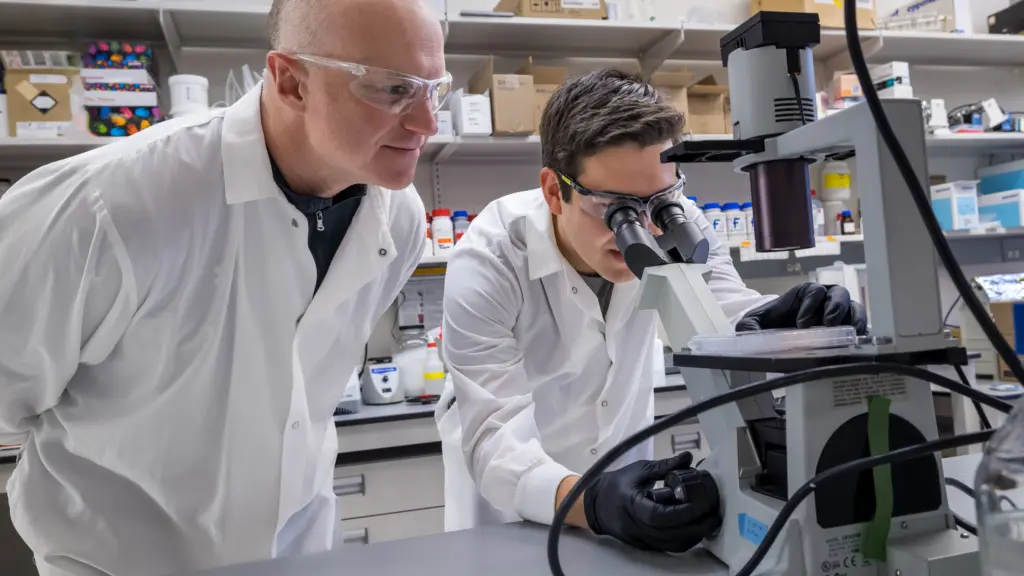08 Dec Mineral coatings could enable shelf-stable mRNA therapies

The rapid development of mRNA-based vaccines against COVID-19 was a gamechanger in the global pandemic. The vaccines employ messenger RNA to direct cells to produce a protein from the surface of the virus—triggering an immune response that preps our body for the real thing.
These vaccines are the result of decades of incremental mRNA research (some of which earned two scientists the 2023 Nobel Prize in medicine). Multiple estimates show the preventative treatments have saved millions of lives.
There’s just one problem: COVID vaccines, as well as other mRNA-based therapies for cancer, require cold-chain storage to maintain their potency.
“It sounds like a trivial problem, but it’s actually quite a tremendous problem,” says William Murphy, a professor of biomedical engineering and orthopedics and rehabilitation at the University of Wisconsin-Madison. “If you’re trying to get these to sub-Saharan Africa, you’re going to have substantial challenges.”
Murphy and his lab members believe they’ve found a viable alternative that could allow mRNA therapeutics to be stored at room temperature. In a new paper in the journal Acta Biomaterialia, the researchers detail how using mineral coatings can maintain mRNA activity for up to six months. With that kind of preservation, mRNA therapeutics—including vaccines against infectious diseases and emerging treatments for cancer and tissue regeneration (the latter another Murphy lab project)—could be stored on the shelf at local clinics, allowing them to reach lower-resourced communities across the country and world.



